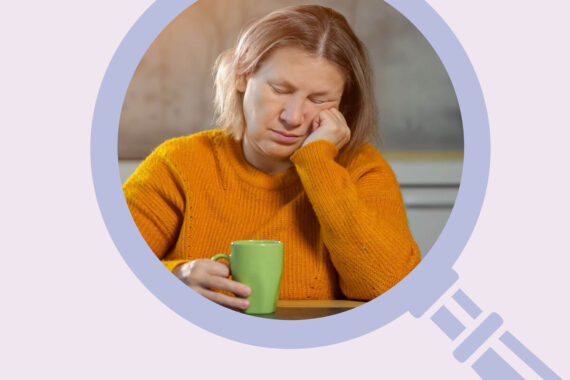Case of the month: What is the diagnosis in this case of treatment-resistant hypothyroidism?

In the next in our series, Dr Keith Hopcroft asks what could be the diagnosis in this patient with hypothyroidism that isn’t responding to treatment
Note details of this case have been altered to protect individuals’ identities
You review a 55-year-old lady who presented a few weeks previously with tiredness. She is on no prescribed medication and simply takes occasional OTC loperamide for longstanding IBS, and uses NSAID gels when her osteoarthritis of her thumbs play up. In the past she has had occasional courses of iron for anaemia which has been attributed to heavy periods.
Her ‘tiredness screen’ is normal except for an aberrant thyroid function test with TSH of 9 mU/L (0.3-5) and FT4 of 7.8pmol/L (7.9-16). You discuss this with her – she’s not terribly surprised, because her mother had hypothyroidism. She’s actually already feeling a little better and attributes her symptoms to some stress, so you agree simply to repeat the blood test in two month’s time.
At this subsequent review, the TFTs are more deranged than before. Her TSH is now 22mU/L and her T4 has dropped to 4.1pmol/L. She is feeling worse, with deteriorating tiredness, further weight gain and some cold intolerance.
You diagnose hypothyroidism and start her on 100mcg of levothyroxine per day.
The in-house pharmacist takes over her care with a view to titrating her dose as needed. Six months later, he discusses her case with you. Despite escalating doses – now 200mcg/day – her TFTs still suggest she is significantly under-replaced. The pharmacist has gone through the protocol for possible causes – she is adamant that she is taking the medication regularly, she takes it on an empty stomach and she is on no medication (prescribed or OTC) that might be interfering with the thyroxine.
What do you think is going on? What blood test might you want to do?
Put your suggestions in the comments below. Answer to be revealed in the coming weeks!
Dr Keith Hopcroft is a GP in Essex
Visit Pulse Reference for details on 140 symptoms, including easily searchable symptoms and categories, offering you a free platform to check symptoms and receive potential diagnoses during consultations.
Related Articles
READERS' COMMENTS [6]
Please note, only GPs are permitted to add comments to articles



 Oviva’s fully remote Tier 3 Weight Management programme
Oviva’s fully remote Tier 3 Weight Management programme









Loperamide interaction?
Coeliac disease with malabsorption of levothyroxine? At increased risk, also history of anaemia
In the absence of significant loperamide intake or bowel symptoms, and having confirmed hypothyroidism and not just anaemia, I would suspect social mediopathy or DrGoogleitis.
I may be old-fashioned, but would not have started her on a dose of 100 microgrms, only 25, and then would have been seeing her presumably again sooner for lack of improvement, at which point an autoimmune thyroiditis would be suspect, give the sudden deterioration, but this does not account for lack of response, and there is also persistent thyroid stimulation.
I would have referred to specialist, but would expect them to be able to do serum T4 and freeT4 and free T3 levels, thyroid autoantibodies, LATS antibodies, and also check for diabetes and use of Lithium or similar salts, Amiodarone, and OTC thyroid supplements.
I agree with DC. Straight onto 100mcg of thyroxine? Who does that?
In 99% of these cases, it’s compliance. Easily picked up by looking at the frequency of ordering their medication, despite constant assurance that they ‘definitely take it every day’. When you last had 56 tablets 6 months ago, that can not be possible.
Assuming its not that, probably some sort of malabsorption due to the clue of the iron deficiency.
Yup TTG, also frankly hypothyroid so no place for 25mcg starting dose (BSE guidance 1.6mcg/kg body weight)
Iron deficiency reduces the conversion of T4 to active T3, and is associated with autoimmune thyroid disease (Hashimotos).
And menopause wouldn’t help neither.